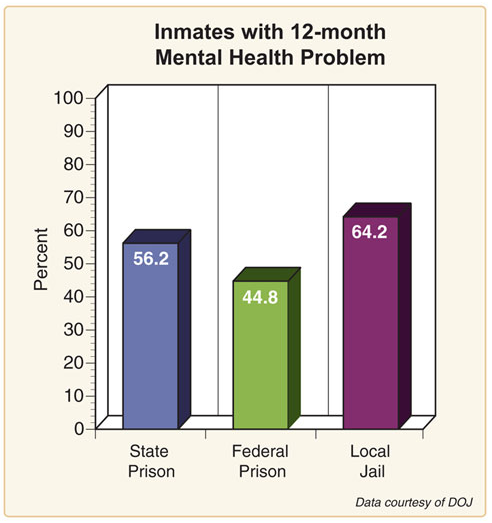More than half of inmates in state prisons and local jails are mentally ill.
They get medicine for those illnesses while behind bars. So what happens when they get out?
This is a big problem for Washington state and for America, which releases 650,000 prisoners a year. As this piece in Slate.com shows, about 40 percent of those ex-cons will wind up back behind bars.
The cost to taxpayers is high, since it’s $100,000 to build a single prison cell and about $40,000 to guard and feed one prisoner for a year. That doesn’t tally other costs for judges, prosecutors, police officers and courts.
What if a simple, cheap step could help stop that revolving door?
Iowa is one state experimenting with such a reform.
Here’s how the Slate.com story describes it:
Iowa is experimenting with an elegantly simple solution. Under the Central Pharmacy Pilot Project, an inmate is still given his 30-day supply of medication upon his release but is also handed prescriptions for an additional 60 days of medication.
…
The pilot program has been running for less than two years, but the early returns are promising. Through the program’s first nine months—the last time the stats were compiled—none of the 165 participants had been charged with a violent crime in the first 90 days after his release, compared to 1.6 percent of a similar population of severely mentally ill former inmates who were not in the program. The gains were even more pronounced when it came to the type of smaller violations that can land an ex-con back in prison for violating the conditions of his release. Less than 3 percent of participants suffering from less severe but still chronic mental illnesses had their releases revoked, compared with 11.3 percent of nonparticipants with similar conditions.
There’s also a case to be made for substance abuse treatment, since a large percentage of inmates either committed their original crime while high or got involved with property crimes to feed an addiction.
A study by the Pew Trusts showed the benefits of a two-pronged approach along those lines. Here’s a short summary of their conclusions:
Research has shown that health care, particularly in the areas of substance abuse and mental illness, reduces the likelihood of ex-offenders returning to prison.
Researchers and advocacy groups say the benefits of providing health care to ex-felons do not end with the ex-felons themselves. Prisons have high rates of hepatitis C, HIV and tuberculosis. Untreated former prisoners carry those diseases into communities on the outside and spread those infections.

__________________________________________
